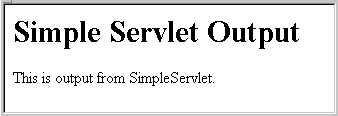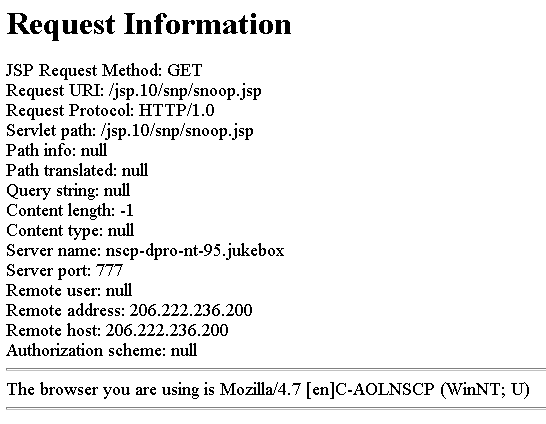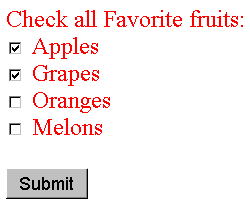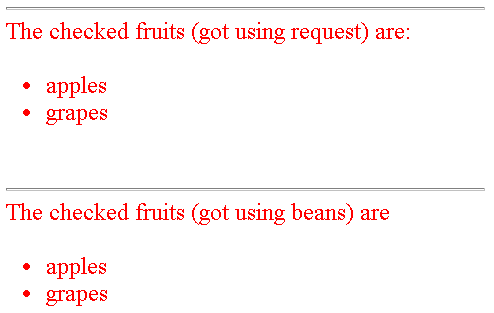
server_root/plugins/samples/servletsThis directory contains the following directories:
beans -- Contains example Java Bean files for JSP 0.92.beans.10 -- Contains example Java Bean files for JSP 1.x.bookstore -- Contains files for an online bookstore example. This example contains both servlets and JSPs.jsp.092 -- Contains subdirectories that each contain an example for JSP 0.92. To use one of these examples, you must place it in a legacy directory; see "Running 0.92 JSP" for details.jsp.10 -- Contains subdirectories that each contain an example for JSP 1.x.make -- Contains example makefiles for servlets. These are common makefiles containing rules that are included by all other makefiles.servlets -- Contains subdirectories that each contain Java source files and makefiles for servlet examples.sessions -- Contains session manager directories.TheSimpleSessiondirectory contains code forSimpleSessionManager.java, which is the default servlet session manager when the iPlanet Web Server runs in single process mode, andSimpleSession.java, which defines session objects, the sessions managed bySimpleSessionManager. The source code forSimpleSessionManagerandSimpleSessionare provided for you to use as the starting point for defining your own session managers if desired.
TheJdbcSessiondirectory containsJdbcSessionManager.javaandJdbcSession.java, which contain support for sessions stored in a database using JDBC.
For more information about sessions and session managers, see Appendix A, "Session Managers."
server_root/plugins/samples/servlets/servlets.
These examples are simple, introductory examples. For information about using the Java Servlet API, see the documentation provided by Sun Microsystems at:
http://java.sun.com/products/servlet/index.html
SimpleServlet example in the server_root/plugins/samples/servlets/servlets/Simple1 directory.
This servlet generates an HTML page that says "This is output from SimpleServlet." as shown in Figure 2.1.

Figure 2.1 Output from SimpleServlet.class
This example defines the main servlet class as a subclass ofHttpServlet and implements the doGet method. The code is shown below:
import java.io.*;
import javax.servlet.*;
import javax.servlet.http.*;
public class SimpleServlet extends HttpServlet
{
public void doGet (
HttpServletRequest request,
HttpServletResponse response
) throws ServletException, IOException
{
PrintWriter out;
String title = "Simple Servlet Output";
// set content type and other response header fields first
response.setContentType("text/html");
// then write the data of the response
out = response.getWriter();
out.println("<HTML><HEAD><TITLE>");
out.println(title);
out.println("</TITLE></HEAD><BODY>");
out.println("<H1>" + title + "</H1>");
out.println("<P>This is output from SimpleServlet.");
out.println("</BODY></HTML>");
}
}
CounterServlet example in the server_root/plugins/samples/servlets/servlets/Counter directory.
This servlet generates an HTML page that reports the number of visits for an individual user and for all users, as shown in Figure 2.2.

Figure 2.2 Output from CounterServlet.class
This example defines the main servlet class as a subclass ofHttpServlet and implements the doGet method, as the SimpleServlet example did, but it also defines a thread, tracks total hits by reading from and writing to a file, and tracks hits from individual users using a cookie. The code is shown below:
import java.io.*;
import javax.servlet.*;
import javax.servlet.http.*;
public class CounterServlet extends HttpServlet
{
private File _counterFile = new File ("/tmp/CounterServlet.dat");
private CounterWriterThread _cntWrtThread = new CounterWriterThread ();
private int _cnt = 0;
private boolean _fTerminating = false;
public void init (ServletConfig config)
throws ServletException
{
super.init (config);
readCounter ();
_cntWrtThread.start ();
}
public class CounterWriterThread
extends Thread
{
public void run ()
{
while (!_fTerminating)
{
writeCounter ();
try {
sleep (1000);
}
catch (Exception ie)
{
}
}
}
}
private void writeCounter ()
{
DataOutputStream dos = null;
try {
dos = new DataOutputStream (new FileOutputStream (_counterFile));
dos.writeInt (_cnt);
}
catch (Exception e)
{
}
finally {
try {
if (dos != null)
dos.close ();
}
catch (Exception ioe)
{
}
}
}
private void readCounter ()
{
DataInputStream dis = null;
try {
dis = new DataInputStream (new FileInputStream (_counterFile));
_cnt = dis.readInt ();
}
catch (Exception e)
{
}
finally {
try {
if (dis != null)
dis.close ();
}
catch (Exception ioe)
{
}
}
public void doGet (
HttpServletRequest request,
HttpServletResponse response
)
throws ServletException, IOException
{
PrintWriter out;
// set content type and other response header fields first
response.setContentType("text/html");
// then write the data of the response
out = response.getWriter ();
_cnt++;
Cookie cookies[] = request.getCookies();
Integer nof = new Integer (0);
for(int i = 0; i < cookies.length; i++ )
{
if (cookies[i].getName ().equals ("CounterServletCookie"))
{
String nofS = cookies[i].getValue ();
try {
nof = Integer.valueOf (nofS);
}
catch (Exception nfe)
{
}
break;
}
}
nof = new Integer (nof.intValue () + 1);
Cookie c = new Cookie ("CounterServletCookie", nof.toString ());
c.setMaxAge (3600 * 24 * 365);
c.setPath ("/");
response.addCookie (c);
out.println("<HTML><BODY><CENTER>");
if (nof.intValue () > 1)
out.println ("Thank you for coming back. You have visited this page <B>"
+ nof + "</b> times");
out.println("This page was accessed <B>" + _cnt + "</B> times total");
out.println("</CENTER></BODY></HTML>");
}
}server_root/plugins/samples/servlets/jsp.10.
These examples are simple, introductory examples. For information about creating JSPs, see Sun Microsystem's JavaServer Pages web page at:
http://java.sun.com/products/jsp/index.html
request object, which contains information about the request that invoked the page, such as the requested URI, the query string, the content type, and so on. The request object has properties such as requestURI, queryString, and contentType.
This example displays information about the current request. It gets all its data from the request object, which is automatically passed to the JSP. This is the snoop.jsp example in the server_root/plugins/samples/servlets/jsp.10/snp directory.
Figure 2.3 shows an example of the output page generated by this JSP.

Figure 2.3 Output page generated by snoop.jsp
The source code forsnoop.jsp is:
<html>
<body bgcolor="white">
<h1> Request Information </h1>
<font size="4">
<%@ page session="false" %>
JSP Request Method: <%= request.getMethod() %>
<br>
Request URI: <%= request.getRequestURI() %>
<br>
Request Protocol: <%= request.getProtocol() %>
<br>
Servlet path: <%= request.getServletPath() %>
<br>
Path info: <%= request.getPathInfo() %>
<br>
Path translated: <%= request.getPathTranslated() %>
<br>
Query string: <%= request.getQueryString() %>
<br>
Content length: <%= request.getContentLength() %>
<br>
Content type: <%= request.getContentType() %>
<br>
Server name: <%= request.getServerName() %>
<br>
Server port: <%= request.getServerPort() %>
<br>
Remote user: <%= request.getRemoteUser() %>
<br>
Remote address: <%= request.getRemoteAddr() %>
<br>
Remote host: <%= request.getRemoteHost() %>
<br>
Authorization scheme: <%= request.getAuthType() %>
<hr>
The browser you are using is <%= request.getHeader("User-Agent") %>
<hr>
</font>
</body>
</html>
server_root/plugins/samples/servlets/jsp.10/checkbox directory.
This example presents a web page, check.html, that displays a form asking the user to select their favorite fruits. The action of the form is checkresult.jsp. This JSP file gets information about the fruits from a Java bean. (Note that Java beans were originally designed for use with visual tool builders, and they have some overhead that can make them slow when used to retrieve data to display in web pages.)
The discussion of this example has the following sections:
POST and the action is checkresult.jsp. (It also works if the form's method is GET.)
<FORM TYPE=POST ACTION=checkresult.jsp>Figure 2.4 shows an example of the form.

Figure 2.4 This form invokes a JSP as its action
checkresult.jsp responds to the form. It uses a request and then a bean to access the parameters received from the form.
The output page generated by checkresult.jsp displays the fruits that were selected. The JSP file gets information about the fruits from Java Beans.
This JSP file demonstrates the following features:
Figure 2.5 shows an example of the output from checkresult.jsp:

Figure 2.5 A JSP page generated in response to a form submission
request.getParameterValues method retrieves an object that has attributes for each parameter in the query string.
For example, if the following URL is used to invoke a JSP:
http://my_domain.com/fruits/checkresult.jsp?Apples=on&Oranges=onThe
request object has properties Apples and Oranges.
request object, are always available implicitly to a JSP page. Other objects, such as user-defined objects, are not automatically available to the page, in which case you have to include a <useBean> tag to tell the page which object to use.
The JSP tag <useBean> creates an instance of an externally defined Java Bean for use within the JSP page. For example, the following code creates an instance of the Java Bean object checkbox.CheckTest, which is defined in checktest.html:
<jsp:useBean id="foo" scope="page" class="checkbox.CheckTest" />In this case, the bean instance exists for the duration of the page. For more information about defining Java Beans, see:
http://java.sun.com/beans/index.html
checkresult.jsp:
<html>
<body bgcolor="white">
<font size=5 color="red">
<%! String[] fruits; %>
<jsp:useBean id="foo" scope="page" class="checkbox.CheckTest" />
<jsp:setProperty name="foo" property="fruit" param="fruit" />
<hr>
The checked fruits (got using request) are: <br>
<%
fruits = request.getParameterValues("fruit");
%>
<ul>
<%
if (fruits != null) {
for (int i = 0; i < fruits.length; i++) {
%>
<li>
<%
out.println (fruits[i]);
}
} else out.println ("none selected");
%>
</ul>
<br>
<hr>
The checked fruits (got using beans) are <br>
<%
fruits = foo.getFruit();
%>
<ul>
<%
if (!fruits[0].equals("1")) {
for (int i = 0; i < fruits.length; i++) {
%>
<li>
<%
out.println (fruits[i]);
}
} else out.println ("none selected");
%>
</ul>
</font>
</body>
</html>
Last Updated: 02/25/00 16:19:10
© Copyright © 2000 Sun Microsystems, Inc. Some preexisting portions Copyright © 2000 Netscape Communications Corp. All rights reserved.